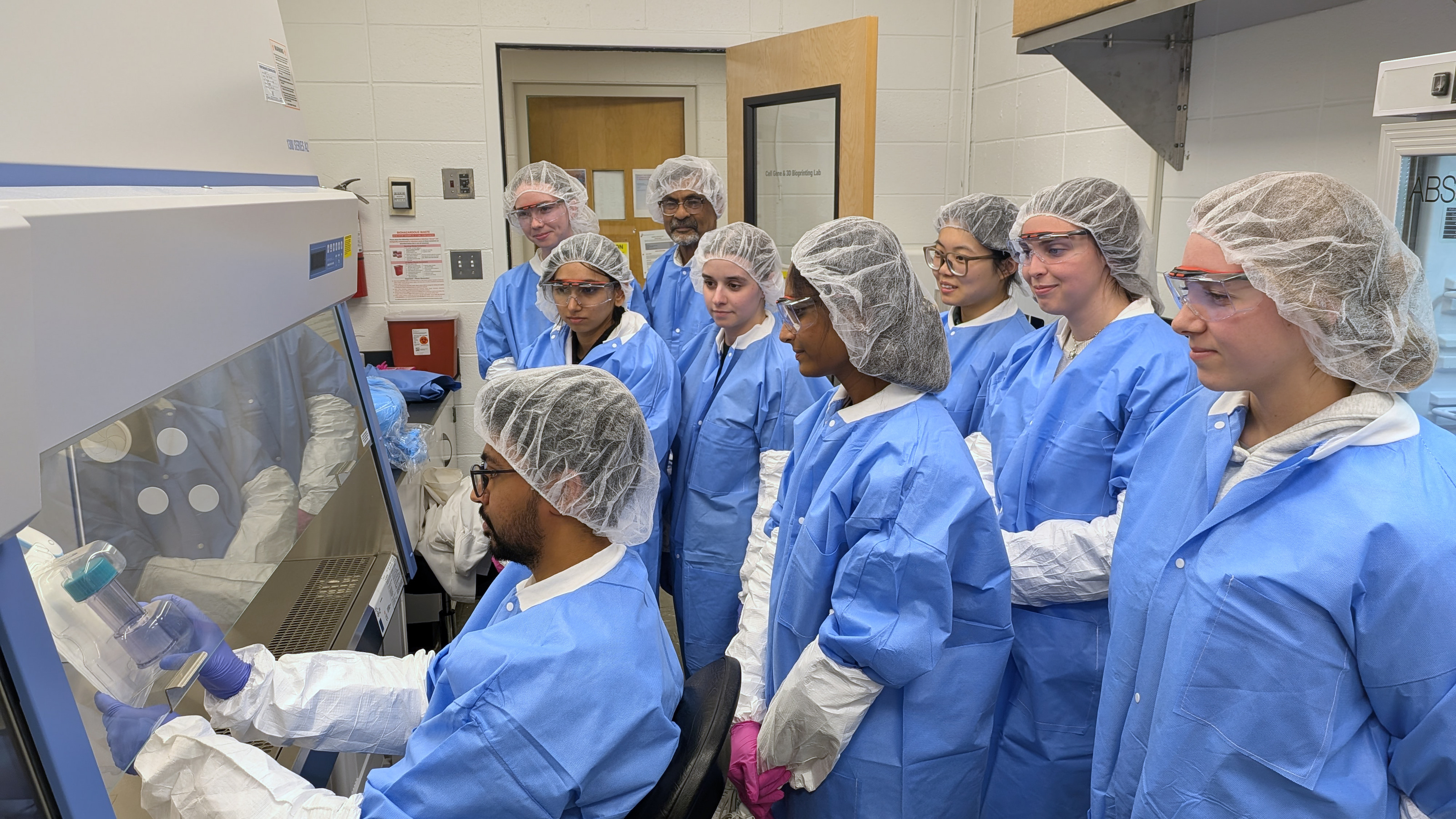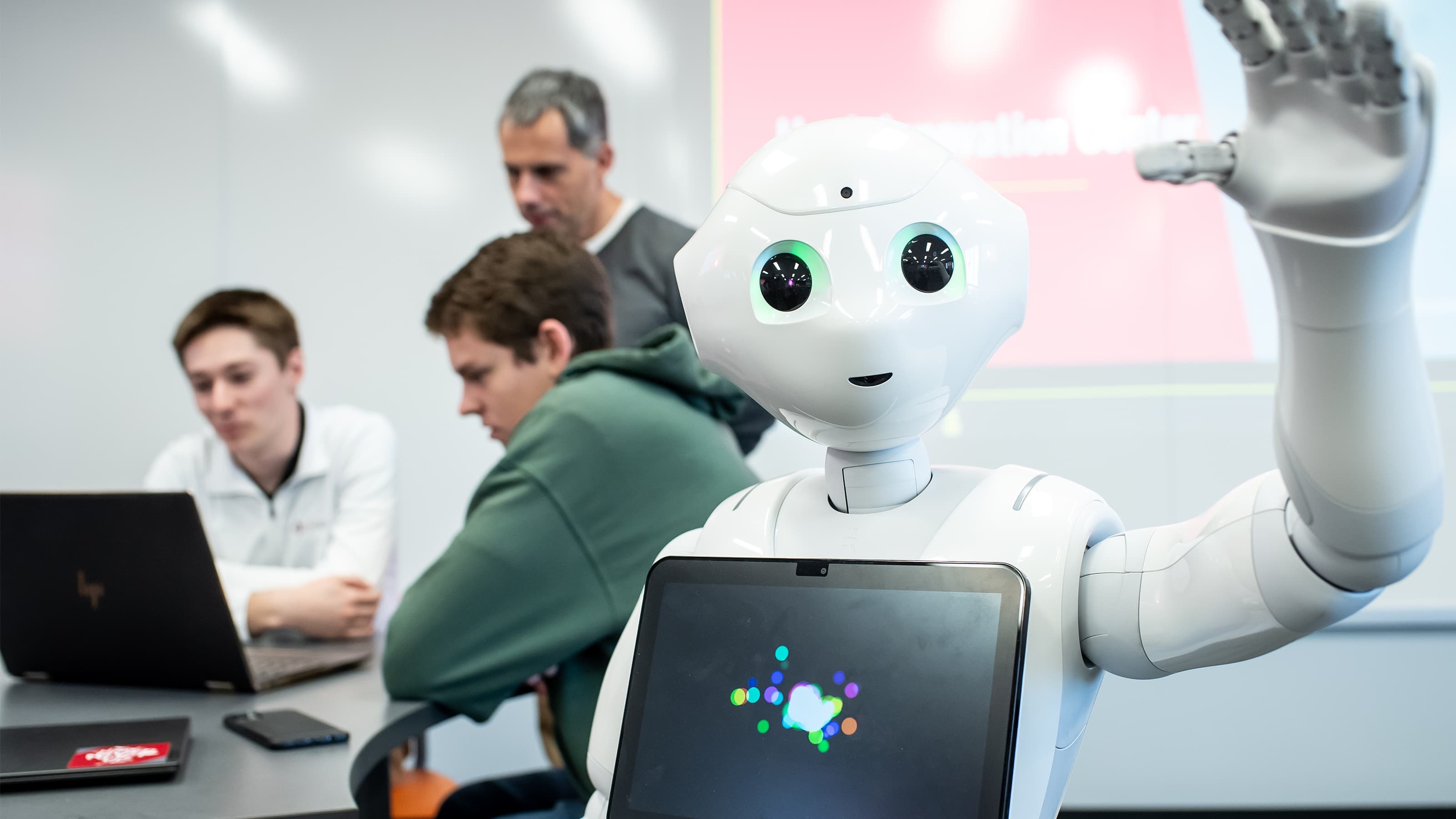AI in the Writing Center: A Summer Scholar Investigates Its Effectiveness
Writing Center tutor Tayla Evans, BA ’27, spent 10 weeks in the Summer Scholars Program researching artificial intelligence and its impact on writing centers across the country.

Artificial intelligence (AI) has quickly woven itself into classrooms, workplaces and everyday life. Higher education is no different. For writing centers in particular, AI raises important questions: Can it serve as a meaningful support for students, or does it risk replacing the critical thinking and creativity at the heart of writing?
Saint Joseph’s University Writing Center tutor Tayla Evans, BA ’27, spent 10 weeks in the University’s Summer Scholars Program trying to get to the bottom of it all, at least when it comes to AI and its impact on the Writing Center. As artificial intelligence continues to play a role in modern academia, it will inevitably have a presence in student writing and, more specifically, in writing centers across the country. Evans sought to discover whether AI can be used effectively and ethically during student tutoring appointments in an effort to strengthen writing and assist with projects.
The English major examined 50 different writing centers from across the United States. This included two-year and four-year colleges, public and private ones, historically black colleges and universities (HBCUs), faith-based institutions, research-heavy universities and everything in between. She wanted to better understand their services and offerings to students, including brainstorming, pre-writing, outlines and how they handle the writing process itself.
She quickly homed in on one critical item many writing centers mentioned, which became the heart of her research: citations. This is one of the most asked-about topics within the SJU Writing Center, as students learn to navigate different rules, from the Modern Language Association (MLA), American Psychological Association (APA) and Associated Press (AP), just to name a few.
Evans tested three different AI models: NotebookLM, Gemini and ChatGPT, to see if they understand not just the mechanics behind citations but also the rhetoric around them, including why citations are used, not just how to cite.
So, could AI help teach how to complete citations in an effective way? Her early conclusions say, “Not quite yet.” She believes that as a society, we can save the energy that it takes to run these models and instead use existing online resources like Purdue OWL and Excelsior OWL.
There may be some benefits to AI, though, and ways in which it could aid Writing Center tutors.
“When it comes to word count and having to shorten a piece of writing, it could be very helpful,” Evans says. “That being said, I noticed it had the ability to take away my voice, or the way I said something, and it may have been impactful and important to the piece. So, we can’t blindly trust AI, but it can be there as a support to make my, or someone else’s writing, better.”
We can't blindly trust AI, but it can be there as a support to make my, or someone else's writing, better.
Tayla Evans, BA ’27
As the landscape continues to evolve, how AI is used in the SJU Writing Center will evolve, too. Evans’ Summer Scholars mentor, Jenny Spinner, PhD, professor of English and director of the Writing Center, agrees that, while AI may have broader uses, it’s not effective in helping students with citations.
“We’re doing our best to steady ourselves, to figure out how best to serve writers,” says Spinner. “We try to start with where writers are and work our way out from there. We know writers struggle with citations. It’s one of the things they most ask us to help them with. So, can AI help us, help them? That’s the heart of the research. (Spoiler alert: Not really.)”
Evans plans to continue research on her own even after the end of Summer Scholars. And with an inquisitive mind, she hopes to discover more about how AI will affect writing on college campuses everywhere.



